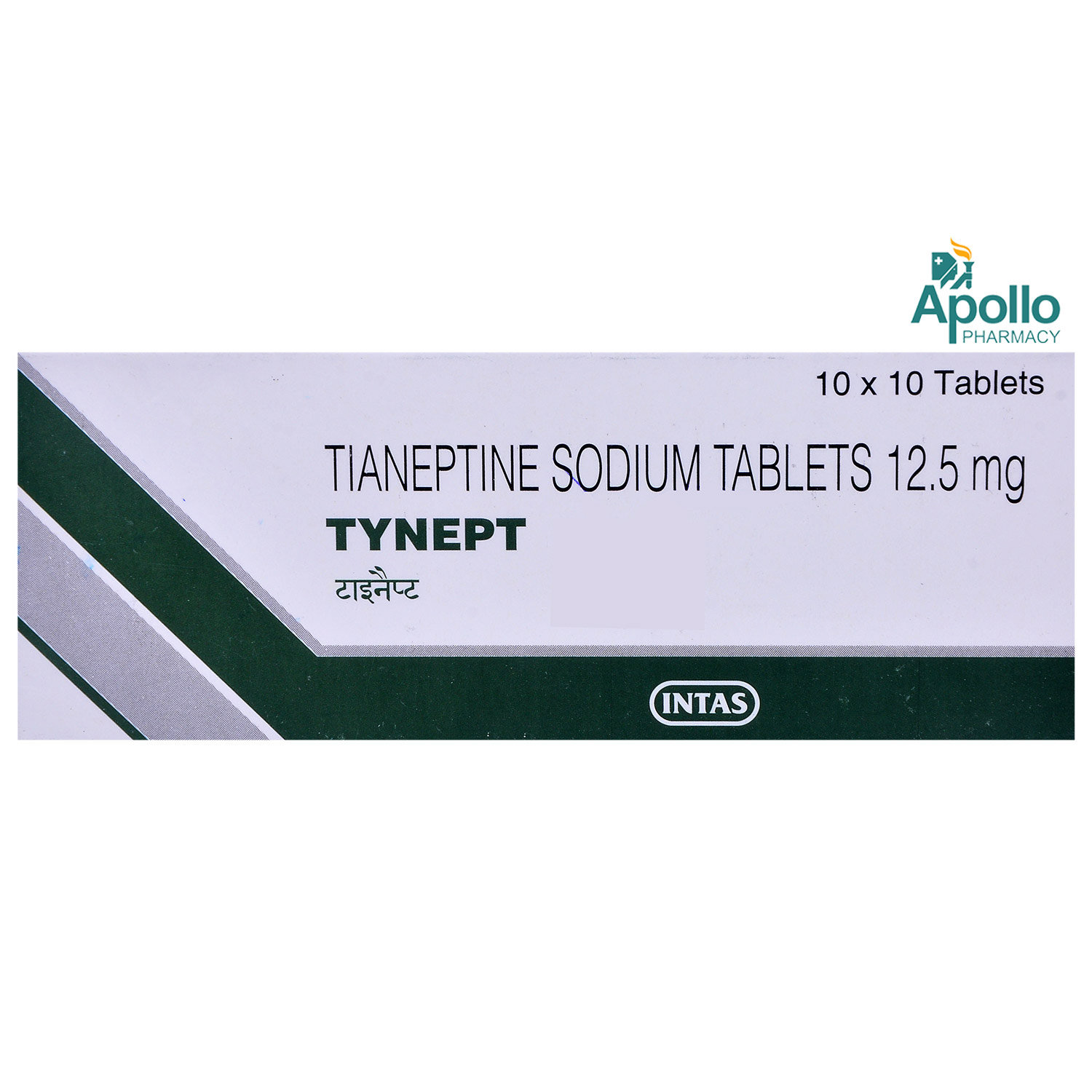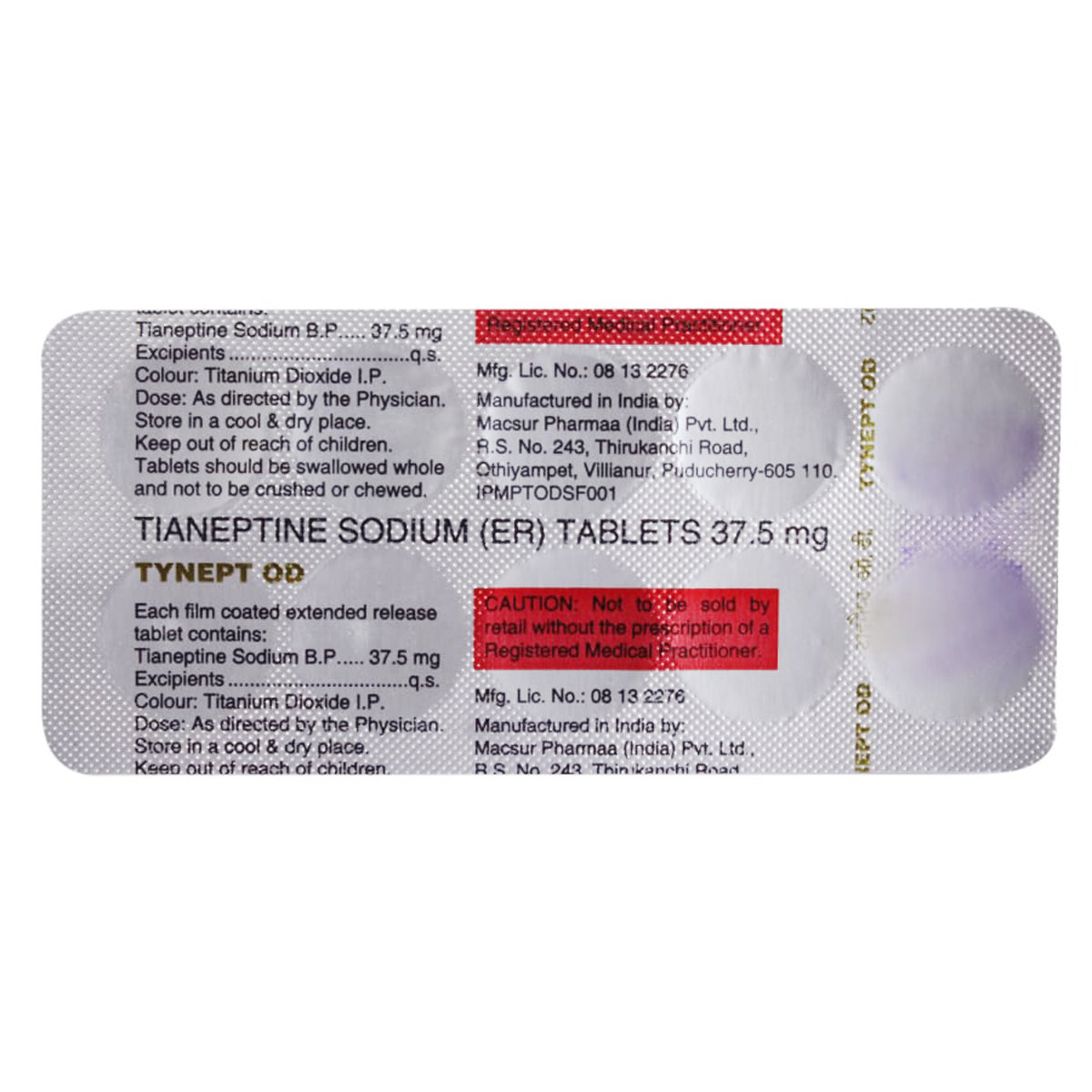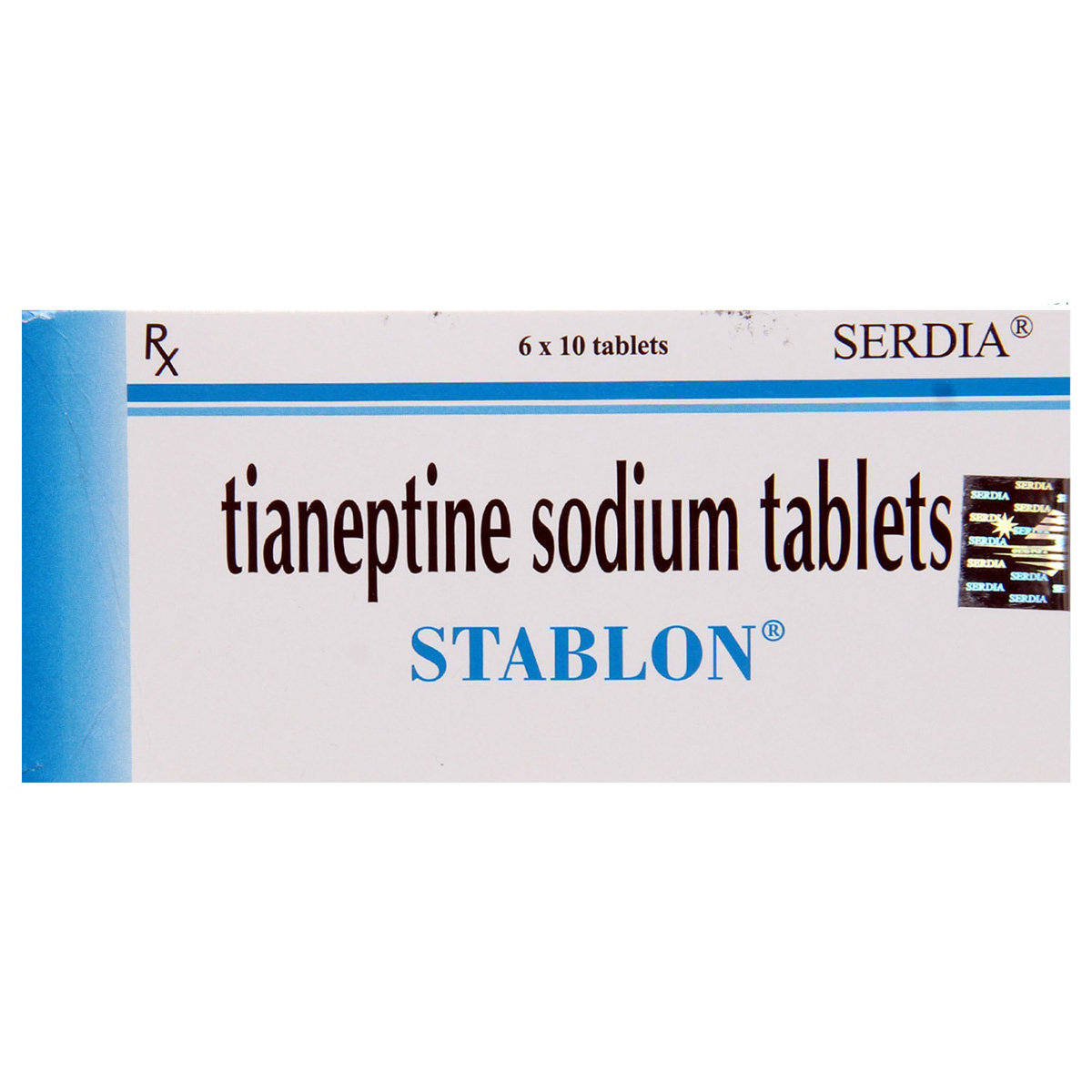Tianeptine
About Tianeptine
Tianeptine belongs to the class of medications called 'antidepressants' used to treat depression in adults above 18 years of age. Depression is a mood disorder characterized by persistent feelings of sadness, loss, or anger. Tianeptine contains sertraline which is a selective serotonin reuptake inhibitor (SSRI).
Tianeptine contains 'Tianeptine' that affects certain chemical messengers (serotonin, norepinephrine) in the brain, which communicate between brain cells, thereby regulating mood and preventing depression. It increases the serotonin hormone release in the body and is responsible for improving mood, cognition, and memory.
You are suggested to take $ame as long as your doctor has prescribed it after checking your medical condition. Your doctor gradually reduces the dose before stopping the treatment. Common side-effects of Tianeptine are drowsiness, dizziness, fatigue, headache, diarrhoea, dry mouth, sore throat, loss of appetite, feeling unwell, and irritation. Most of the side effects will not require medical attention and improve with the discontinuation of treatment.
In some cases, Tianeptine may cause suicidal thoughts. So, patients who are taking Tianeptine are regularly monitored. Do not take Tianeptine if you are allergic (hypersensitive) to any ingredients present in this medicine. Before taking Tianeptine, inform your doctor if you are antidepressants, antipsychotics, antibiotics, prescription or nonprescription drugs, or any dietary supplements. Tell your doctor if you are previously diagnosed with seizures, schizophrenia, liver diseases, diabetes, or bleeding disorders. Let your doctor know if you are pregnant or planning to get pregnant or breast-feeding.
Uses of Tianeptine
Medicinal Benefits
Tianeptine belongs to the class of antidepressants used to treat depression. Tianeptine contains Tianeptine that affects certain chemical messengers (serotonin, norepinephrine) in the brain, which communicate between brain cells, thereby helping regulate mood and prevent depression. Increasing the release of the serotonin hormone in the body is responsible for improving mood, cognition, and memory.
Directions for Use
Storage
Side Effects of Tianeptine
- Fatigue
- Diarrhoea
- Irritation
- Dizziness
- Headache
- Dry mouth
- Sore throat
- Drowsiness
- Feeling unwell
- Loss of appetite
Drug Warnings
Do not abruptly stop taking the medication. Abrupt stopping of the treatment may lead to withdrawal symptoms such as flu-like symptoms, headache, dizziness, insomnia, restlessness, and nausea. These symptoms usually appear during the first few days after stopping treatment and go away after a few days. If the symptoms persist or worsen, consult a doctor immediately. Do not take Tianeptine if you are allergic to Tianeptine or any of the other ingredients of this medicine. Tell your doctor if you are taking antidepressants, antipsychotic medication, antihypertensives, or antibiotics. Talk to your doctor if you have a history of seizures, bipolar disorder, or schizophrenia. Patients with liver diseases, diabetes, heart disease, and bleeding disorders should use Tianeptine with caution. Tianeptine can not be used in adolescents under 18 years of age as it increases suicidal tendencies in this population.
Drug Interactions
Drug-Drug Interactions: Tianeptine may interact with other antidepressants (moclobemide, phenelzine, tranylcypromine, or isocarboxazid), Parkinson’s disease (selegiline), antibiotic (linezolid), and antipsychiatric drug (pimozide).
Drug-Food Interactions: Avoid alcohol, grapefruit juice and St. John's wort herbal supplements as it may increase the risk of side-effects when taken along with Tianeptine.
Drug-Disease Interactions: Tianeptine should be used with caution in patients with seizures, schizophrenia, liver diseases, diabetes, heart diseases, and bleeding disorders.
Drug-Drug Interactions Checker List:
Safety Advice

Alcohol
unsafeTianeptine interacts with alcohol and increases the risk of side-effects. So it is advisable not to consume alcohol along with Tianeptine.

Pregnancy
cautionTianeptine should be used with caution in pregnant women and women of childbearing potential.

Breast Feeding
cautionTianeptine should be used in breastfeeding mothers only when prescribed by a doctor.

Driving
unsafeTianeptine causes drowsiness. So, it is recommended to avoid driving or operating heavy machinery after taking Tianeptine.

Liver
cautionTianeptine should be used with caution in patients with liver diseases. Dose adjustments may be necessary.

Kidney
cautionTianeptine should be used with caution in patients with kidney problems.

Children
unsafeTianeptine is not recommended for use in anyone below 18 years of age.
Habit Forming
Diet & Lifestyle Advise
- Maintain a healthy diet and exercise regularly helps in improving overall health and boosts self-esteem.
- Exercising helps in the production of the body’s natural antidepressants. It also helps in relieving stress, improving mood, boosts self-esteem, and provides restful sleep.
- Lose excess weight and keep a check on your weight.
- Improve your mood by being active, socializing with others, and talking about your feelings.
- Quit alcohol intake and smoking.
- Include foods rich in omega fatty acids such as fish, nuts, fresh fruits, vegetables, and olive oils.
- Follow a regular sleep pattern to improve the amount and quality of sleep you get.
- Neurotransmitters are made up of amino acids. Amino acid-rich foods such as meat, dairy products, and certain fruits and vegetables help in the proper maintenance of neurotransmitters.
- Perform meditation and yoga. This helps in relieving stress and provides relaxation.
Special Advise
Tell your doctor if you are thinking of harming yourself as these thoughts can increase during the starting treatment of antidepressant medicine and will go within 2 weeks. Tianeptine may take at least 2 weeks time to show its benefits.
Patients Concern
Disease/Condition Glossary
Depression: It is a mental health disorder in which patients experience persistent loss of interest or mood and feelings of sadness. It affects quality-of-life. Its signs and symptoms include feeling sad, emptiness, hopeless most of the day, loss of interest, loss of pleasure in hobbies, remaining isolated from friends and family. Thus it affects your sleeping, eating, and functioning. If you started feeling like these for at least 2 weeks, you may have depression, a serious but treatable mood disorder.
FAQs
Tianeptine contains Tianeptine that affects certain chemical messengers (serotonin, norepinephrine) in the brain, which communicate between brain cells, thereby helping regulate mood and prevent depression. Increasing the release of the serotonin hormone in the body is responsible for improving mood, cognition, and memory. Thus, Tianeptine helps treat patients with major depression, depressed bipolar disorder, dysthymia (irregular heartbeat) and adjustment disorder.
Do not stop Tianeptine without your doctor's advice. Sudden discontinuation may lead to withdrawal symptoms such as nausea, insomnia, restlessness and anxiety.
Tianeptine interacts with alcohol and increases the risk of side-effects such as drowsiness. It also worsens the disease condition. So, it is advised to stop taking alcohol.
Tianeptine may take one week to several weeks to improve the symptoms as it depends on the severity of the condition.
It's not known whether this reduces male fertility. There's no firm evidence to suggest that taking Tianeptine will reduce fertility in women. Talk to your doctor if you're concerned.
It is advised to consult with your doctor if you are already taking cannabis-based medication before taking Tianeptine as it may cause an increase in heart rate and a state of confusion.
The most common adverse effects of Tianeptine include nausea, constipation, abdominal (stomach) pain, headache, dizziness and dreaming changes.






